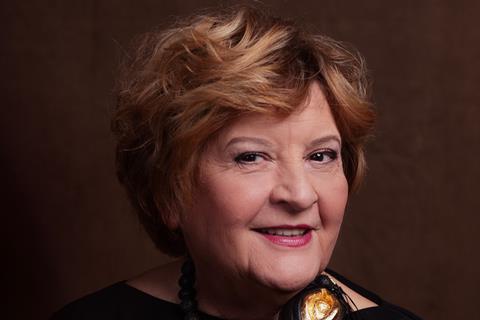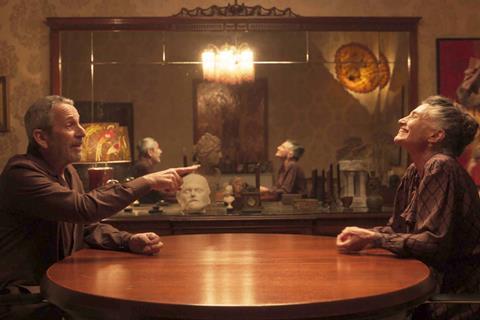
After heading up Estonia’s Tallinn Black Nights Film Festival (POFF) since its inception, nearly 30 years ago, director Tiina Lokk is not afraid to ruffle feathers.
“Everyone knows that I am stubborn enough to keep my line,” says Lokk, on the eve of the opening night on November 7. “I’m still fighting for democracy and the freedom of the festival.”
This year’s programme sees 252 features and 275 shorts from 79 countries, including Ukraine and Palestine. “We are working with all these sensitive countries, and we are trying to show different kinds of voices,” Lokk continues. “We support the filmmakers coming from the kind of countries that still are fighting and believe in democracy and freedom and are fighting for human rights.”
In the official competition, 16 out of 17 of the films are world premieres, including Abu Bakr Shawky’s The Stories and Sengedorj Janchivdorj’s The Muralist. This year’s country of focus is the Catalan region of Spain and the spotlight country is Austria. The festival takes place from November 7-23.
Lokk talks to Screen about her programme highlights, funding challenges and why Baltic filmmaking is in a tricky spot right now.
What are some of the themes emerging from this year’s programme?
This year, we have a lot of films about the relationships between children and society. We have many films that are addressed to parents or grown-ups and speak about the problems among young people. There is also a theme of loneliness. It is one of the topics [in films from] Asia to Europe.
There are also themes of war and crisis. You get the picture of what is going on in the world right now [through our programme]. The problems are always the same, but how they are solved is the interesting picture

You have chosen to open the festival with Carlos Marqués-Marcet’s 2024 musical feature They Will Be Dust as part of the festival’s Catalan focus. Why was that region selected?
Parts of Estonia consist of small regions with a very strong cultural identity, like Catalonia in Spain. It is important to get the news out that Spanish cinema consists of different kinds of regions. Catalonia is producing around 100 films a year.
We always knew Spanish film was rich and interesting. In this case, it is interesting to see many of these filmmakers are Catalans.
The Baltic Film Competition has been split up into fiction and documentary, but there is still only one €5,000 prize for fiction. Can you speak about that change?
In the last five years, I have noticed that Baltic documentaries are developing very rapidly. After Smoke Sauna Sisterhood, there has been a huge interest in documentaries done by Baltic [filmmakers] and so we decided Baltic documentaries needed some kind of focused programme.
Unfortunately, we don’t have the money for a documentary prize this year, but we hope in the coming years we will have a money prize.
What is the present landscape for Baltic filmmaking?
A few years ago, we had a young generation that came with some exciting debuts. Now we are all waiting for what is going on with the second and third films. Estonia is in a big economic crisis, and of course, it does have an influence on filmmaking.
Yes, we are getting more money [from the government] for the service industry, but production of Estonian films is at the same level. Estonia’s situation is also quite difficult because the [state] culture budget has been cut.
How has that affected the funding of the festival?
This year, it was quite a big challenge to make the festival because there was a cut coming from the government side. With our tiny budget anyway, it was quite a big cut. Prices have also been rapidly rising in Estonia. But we are optimistic and in a good mood, and everything so far is good.
There are no Russian films playing in the festival this year. Was that a conscious choice?
We would always accept Russian films, so long as they are not made with Russian government money. It is more or less impossible to find any Russian filmmakers who can make an independent film in Russia right now, so we can only pick up films made by Russians outside of Russia. But this year we didn’t get anything interesting.

























No comments yet